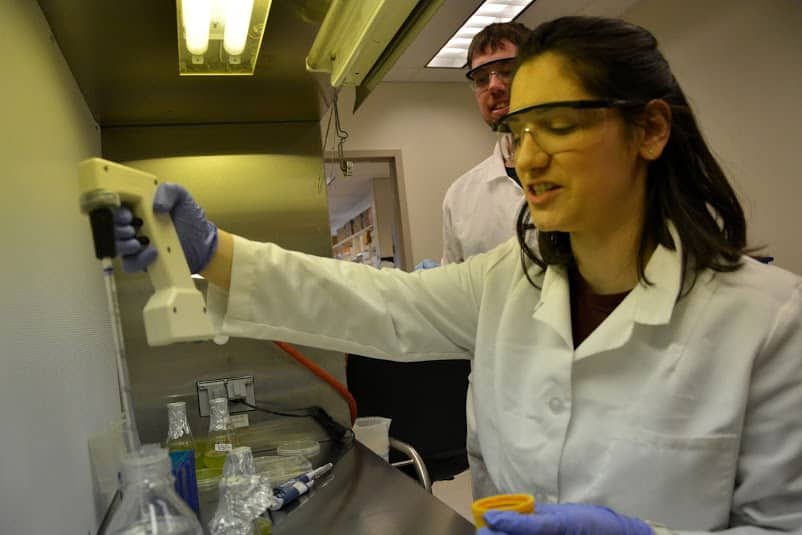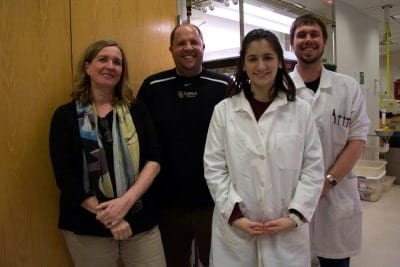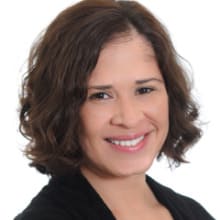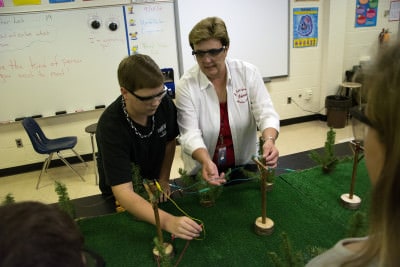

When Mark Townley’s high school student approached him about an independent study opportunity for her senior year, he turned to his Kenan Fellows mentor.
Townley, a 2012-13 Kenan Fellow, interned for five weeks in the research lab of Dr. Heike Sederoff, an associate professor of plant and microbial biology at N.C. State University. As part of his fellowship, Townley developed lessons around his research experience in the production of biofuel using algae.
Now his student, Nadia Cohen, is undertaking a similar research project in the same lab.
“My junior year, I finished all of my science courses and I went to Mr. Townley who pulled his resources and got me this opportunity,” Nadia said.
“I feel so lucky and I wish more teachers could provide opportunities like this for students.”
Creating lessons for peers
The Kenan Fellows Program immerses K-12 educators in local industries or research facilities allowing them to explore how the work being done in these settings can be made relevant to students. Kenan Fellows collaborate with mentors to develop educational materials designed to help students make those real-world connections.
Nadia is working with Townley’s Kenan mentor, Jacob Dums. Like Townley, she is also creating lessons inspired by her research. By creating the lesson plan for her peers, Nadia is having to distill what she has learned and present it in a way that is engaging and approachable. The idea, Townley said, is to mimic his Kenan Fellows Program experience for Nadia.
“For me the most important benefit that she is getting ─ besides the lab experience ─ is the opportunity to learn how to communicate professionally,” said Townley, who teaches environmental science. “She is being asked to apply her knowledge in a way that any student can understand. That’s an important skill and probably one of the most undervalued skills that she is learning.”
Mentoring Townley and Nadia, Dums said, has helped him grow as a professional. Having to introduce lab techniques and breaking down the research at the high school level, forced him to see his own work in a broader way.
“It made us more aware of some things we need to keep track of in our research. We discovered variables that we are not currently controlling,” he said. “Personally, this experience was a great way to learn valuable mentoring skills.”
Future researcher


For 18-year-old Nadia, working in an actual research lab has been awe inspiring. In the lab, she has been studying the algae’s biological capabilities and gathering background data. Since starting her research, she has kept an extensive lab notebook including pictures which Townley uses to assess her progress. She gave a poster presentation at N.C. State University’s Spring Undergraduate Research Symposium and entered a project based on her research in the N.C. Science and Engineering Fair where she placed third in the biological sciences category, and won the RICOH Sustainable Development Award.
“I can enter my freshmen year in a college lab feeling much more confident,” she said. “I like the differences here compared to the labs we do in high school. In the labs we do in high school, if you do them right, you get the outcome that the teacher wants you to get. The outcomes I get here are my outcomes. It has felt more real to me than anything I’ve done in school.”
Listening to her talk, it would be easy to mistake Nadia for a graduate student who has been submersed in the work for years. Phrases like “concentration gradient,” “cell density” and “uptake of amino acids” roll off her tongue. Her eyes light up when she discusses the results of her experiments and the prospect of becoming a research scientist.
“I think research is the best way for scientists to make an impact,” she said.
“Observing and working alongside the researchers in the lab, I learned that you have to have patience and you have to be resilient. You have to be willing to go back and try again. Aspiring to be that kind of person is important to me.”


